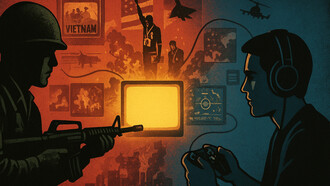I still have a vivid memory of my first year of teaching. It wasn’t a delightful experience but certainly was not the worse. As a novice Moroccan English teacher, your life could turn out to be hell if you aren’t lucky enough to be hired in a small school where students’ behaviour could be manageable. In some schools where the bad reputation of its students is all that teachers whisper about during occasional times; things would get worst. The classroom becomes the battlefield. Any uncontrolled reaction could lead to physical confrontations with students. We have seen that many times, and believe me it brings frustration to both your professional and personal life. In this run, we are not looking to embellish the image of the teacher over that of a child. On the contrary, the following guidance focuses on the errors we, as teachers, tend to make in our practice.
When you seek advice from experienced colleagues about how to deal with learners, expect to hear serious complaints about their low performance, moral degradation and drastic loss of appetite to learn. Some of them would advise you to never show your teeth unless you decide to bite; never talk on trivial matters, and fill the space with only silence. In addition, silence is a good sign of effective teaching performance, at least from an orthodox point of view of teaching. It would feel like they prepare you to enter a war zone and not a classroom. Thus, it takes martial art instead of pedagogy means to manage a classroom. But, how truthful is that?
Is it pedagogy and didactic or martial arts that would make a good learning-teaching session? As a novice teacher, I wasn’t sure how to behave inside the classroom, whether I practice teaching as it is in books and theories or simply follow the leads of experienced and veteran colleagues.
My first session wasn’t the worst or the greatest. Naturally, it started with introducing and making room for knowing each other. What I didn’t know back then is that students were intuitively great judges of character and performance. They repeatedly test us and see what our reaction and response would look like. If we fail to act in discordance with their expectations then we are doomed to unhappiness and dissatisfaction till something happens to change their first impression.
Many teacher supervisors would recommend you to invest more time preparing your lesson plan, and varied activities, and never leave room for students to talk or breathe. They would argue that once students aren’t busy doing learning activities, they would turn to each other and start their natural disturbance. It is truly important to prepare lesson plans beforehand because the more time you work outside the classroom, the less time you work inside it. However, children still need time to pause and talk mindlessly. They also need free time to process information and use their cognitive abilities to make connections between what is known and what is being taught, this is the natural way to build knowledge and make it last longer. But what is more important is that they need time to be recognized just for their presence, just for being there.
Children who live in countries with a high rate of poverty and unemployment deserve to be taught differently. They deserve a teaching practice that openly considers the limits of the learner’s context. Otherwise, we are to fail in our mission. As teachers, we are aware of that but do we act accordingly? Do we teach or act as we teach?















